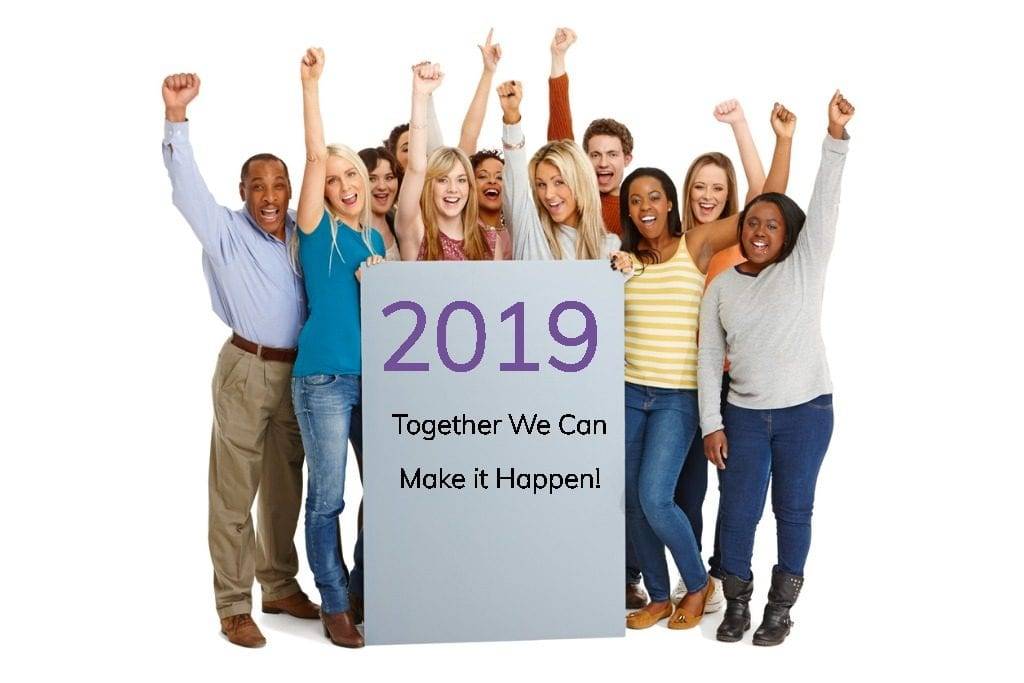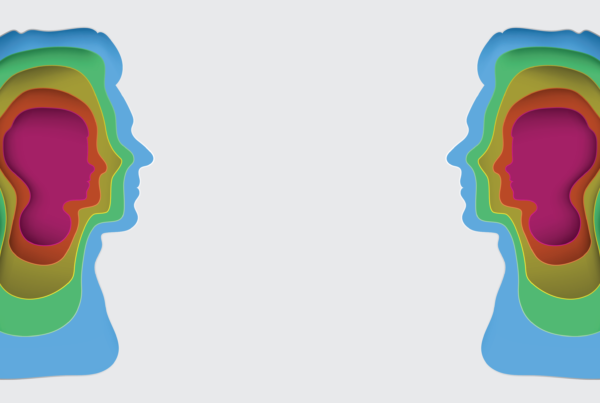By Richard J. Loebl, LCSW, BCD

The stock market is crashing. Our government is in chaos. There seems to be a new shooting or act of terrorism every week. The planet is heating up more rapidly than predicted, as we endure catastrophic fires, storms and floods. War, nuclear threats, and authoritarian regimes continue to imperil populations and the world order internationally. While children are still being caged on the US-Mexico border. If you experienced new levels of anxiety and worry in 2018 you’re not alone.
So what’s to be done? How do we cope with all of the bad news?
As a psychotherapist (and occasional political activist) I believe each of us individually and groups of us collectively can and do make a difference. At a personal level we can change the course of our lives and our relationships when we function from the highest, most evolved version of ourselves. History shows that we are capable of great things when we rise to the occasion. We are often at our very best when things are at their worst.
And history proves that hope is reasonable and appropriate even during times of war, poverty, epidemic, and economic depression. That’s not to minimize the tragedy of great suffering and loss, personally and globally. One aspect of good mental health is the ability to experience all of our feelings – fully, without repression or denial – and to practice acceptance as a first step toward recovery.
There is reason for hope and renewal in 2019 and beyond. Hope itself is one of our most important coping skills. Hope followed by positive action is highly effective in creating change. As Andy told his friend Red in the movie Shawshank Redemption, “Remember Red, hope is a good thing, maybe the best of things, and no good thing ever dies.”
Reasons for Hope
- Our system of government and our constitution are strong and enduring. History is on our side (we have survived and thrived after civil war, world wars, impeachments, The Great Depression, and The Great Recession of 2008).
- The murder rate is actually trending downward in 2018 (despite mass shootings).
- There are numerous indications of progress in the battle against global warming (such as international climate accords and progress in the development of nuclear fission, which will result in an endless source of clean, cheap power)
- National and grass-root movements are achieving positive results in the areas of civil rights, gun violence, sexual harassment, and other important social causes.
- Breakthroughs in medicine and world health include reductions in cancer and HIV deaths, and other improvements in treating and preventing heart disease, cholera, TB, and leprosy.
- Progress is inevitable – it is an invariable rule of history. We will continue to have many challenges in the future, and those challenges provide us with endless opportunities for positive growth and development.
“The arc of the moral universe is long, but it bends toward justice.”
Martin Luther King, Jr.
Progressive Recovery
In which I argue that recovery is much more than repair and restoration. Individuals may “recover” from addiction, depression, and trauma – with abstinence, a return to “normal” functioning, and the ability to live life without dysfunction or disorder. Progressive Recovery is the intention to live life fully, to practice a healthy and robust life style, and to create positive change in ourselves and our world. In Progressive Recovery we grow and develop emotionally, psychologically, and relationally, and we create healthy, productive, cooperative, and loving families and communities.
Imagine a world of people united in their efforts to create a world at peace, to end homelessness, poverty and hunger, to end violence, and to care properly for our planet (thank you John Lennon – you were a dreamer, and you were not the only one). These efforts begin at home. These efforts are relational – including our relationship with ourselves and with others.
7 Steps of Progressive Recovery
- Place the Adult in Charge – In my “Who’s In Charge?” self-help model I define our Adult self as loving and responsible. All of us have an Inner Child, an inner Teenager (often lost and angry), and an Inner Critic. Fortunately, we can learn to put the Adult in charge. The Adult is caring, compassionate, empathetic, responsible, and relational. Children and teenagers are often selfish and aggressive. Adults understand the value of sharing, compromise, and the delay of gratification. Who’s in charge in your relationships? Who’s in charge of the world today?
- Practice Non-Reactivity – The lessons we learned from the Buddha, Gandhi, and Martin Luther King, Jr. remain highly relevant and effective. Non-violent, cooperative relationships are creative and productive. We teach non-reactivity to couples who experience relationship distress. It’s a fundamental step toward relationship repair and positive connection.
- Mindfulness and Radical Acceptance – The term radical acceptance was popularized by Tara Brach, a psychologist and proponent of Buddhist philosophy and practice. Mindfulness is based in eastern meditative practice, and is defined as moment-to-moment awareness without judgment. When we practice these methods in our daily lives, we approach all problems, personal, interpersonal, and societal with equanimity, understanding, and a belief in loving-kindness for ourselves, for others, and for our planet.
- Holistic Communal Wellness – Holistic health considers the whole person – mind, body, spirit and emotions. Holistic communal wellness considers the whole person, the whole family, and the whole community, including the world community. The major religions of the world, quantum physics, and progressive political movements all agree that we are one. We are not simply isolated individuals grouped together in communities and countries. And we do not simply share space together. The actions of one person affect many others. When we care for our personal health, our bodies and our minds, we are more likely to care for the health of others. And as we create optimal health and mental health conditions for our neighbors, communities, and other nations, we also heal ourselves.
- Positive Connections and Partnerships – Building upon holistic communal wellness, we achieve more, create more, and solve more problems when we practice social intelligence in all our affairs. We build productive partnerships with cooperation and compromise to benefit everyone.
- Giving Back to Others – In Deepak Chopra’s book The Seven Laws of Spiritual Success, Dr. Chopra reviews the “Law of Giving and Receiving”. He states that everything in the universe operates through dynamic exchange. Every relationship is one of give and take. Each of us thrives in direct proportion to our acts of generosity and love.
- Practice Gratitude and Forgiveness – Research studies have shown that the daily practice of gratitude is one of the most important keys to happiness. We will never lack for situations and events in life that make us disappointed and angry. (Actually, nothing can “make us” angry. Anger is a choice, albeit an unconscious decision. But that’s for another article.) Today we can practice forgiveness – letting go of the anger, and replacing it with understanding, compassion, and gratitude.
All of us at the Relationship Center of South Florida wish you and your family a very happy, healthy, peaceful, and abundant 2019.
For additional information on anxiety and worry, coping skills, and trauma recovery, please contact us today.







